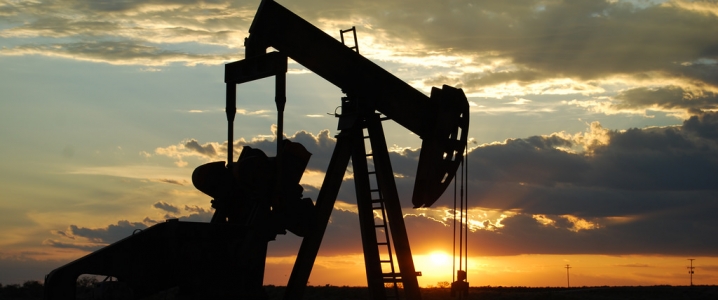On April 10 the Abu Dhabi National Oil Company (ADNOC) unveiled detailed plans for its first competitive exploration and production bid round.
In total, the six blocks – four of which are onshore – cover an area of almost 30,000 sq km, the largest being 6300 sq km and the smallest 2500 sq km.
The launch of competitive bidding for concessions is significant for the emirate in its efforts to unlock the full potential of its energy sector, according to Sultan Al Jabar, UAE minister of state and CEO of ADNOC.
“This approach is central to our expanded partnership strategy, which aims to introduce new opportunities as we broaden and diversify our partnership base,” Al Jabar stated at a press conference in April. “In addition, as we begin to expand our downstream portfolio, the new licensing blocks reinforce our long-term production growth ambitions and build on our successful legacy as a leading upstream player.”
According to surveys carried out by ADNOC, the blocks have a combined resource capacity of billions of barrels of oil and trillions of cubic feet of natural gas.
Final bids are to be tendered in October, with the evaluation process and the winning consortiums to be announced before the end of the year. Related: Oil At Highest Level Since 2014
The auction’s announcement comes on the heels of ADNOC granting or renewing concessions for a number of international partners in March. Some, such as Total of France, have had a long-standing presence in the emirate’s upstream hydrocarbons sector, while others, including Austria’s OMV, are relative newcomers to the Gulf.
These concessions will also support Abu Dhabi’s plans to increase output at existing fields to 3.5m barrels per day (bpd) by the end of this year, up from current capacity of around 3m bpd, with at least some of the additional take to be funnelled into the emirate’s expanding downstream sector.
ADNOC moves to expand downstream capacity
That downstream capacity will also be given a significant lift in the coming years through the expansion and development of ADNOC’s integrated petrochemicals facility at Ruwais.
Speaking in early March, Al Jaber said the goal is to boost the plant’s production capacity to 14.4m tonnes per year by 2025, trebling its existing output.
The facility is intended to make Abu Dhabi a major player in the downstream energy sector and allow it to better respond to shifting market needs for processed products through expanded operational flexibility. This is in response to forecasts that downstream petrochemicals demand could increase by up to 150 percent by 2040, according to Al Jaber.
On May 13 the company is also scheduled to hold its Downstream Investment Forum, where it will announce new projects and further outline its downstream strategy under the Ruwais Industrial Hub Masterplan.
New contracts signed with Samsung
ADNOC’s moves to bolster its downstream business are already creating opportunities for service providers, with South Korean engineering firm Samsung having been awarded two engineering, procurement and construction contracts at the Ruwais complex in late March worth a combined $3.5bn. Related: Goldman: Don’t Bet Against Oil
The largest of the deals will see a joint venture between Samsung and Netherlands-based engineering firm CB&I develop a $3.1bn processing plant to provide ADNOC with an atmospheric residue desulphurisation unit. This will allow the Ruwais refinery to process up to 420,000 bpd of sour crude from its Upper Zakum offshore fields, rather than the premium Murban light sweet crude, freeing up more of the latter for export.
The second agreement, valued at $473m, will see Samsung develop a 230-MW power station and a desalination plant with a daily capacity of 62,400 cu metres, both to be fired by exhaust heat generated by the Ruwais facilities.
Both contracts have in-country value components, allowing local contractors to contribute to the projects.
The development of desulphurisation capacity is important for up- and downstream industries, as some of the new reserves being tapped are high in sulphur content and require additional processing when compared to existing fields.
Currently, Abu Dhabi produces some 6m tonnes of sulphur annually, though output is forecast to double in the next 10 years as new sour gas reserves are brought online and sulphur capture capacity is boosted.
More Top Reads From Oilprice.com:
- U.S. Oil Exports Continue To Break Records
- Is Russia About To Abandon The OPEC Deal?
- IEA: High Oil Prices “Taking A Toll” On Demand



















This explains ADNOC’s strategy to invest heavily in expanding upstream and downstream capacities. Its planned expansion of its upstream capacity aims at raising oil production in existing fields from the current 3 million barrels a day (mbd) to 3.5 mbd by the end of this year.
The downstream capacity will also be given a significant boost through the expansion and development of ADNOC’s integrated refining and petrochemicals complex at Ruwais with the aim of increasing refining capacity to 1.5 mbd and petrochemical production to 14.4m tonnes per year by 2025, trebling its existing output.
ADNOC is also eyeing international downstream investments hoping to buy a minority share in the $44-billion Ratnagiri refinery and petrochemicals complex to be built in the Indian state of Maharashtra, which when completed by 2022 will have a daily throughput capacity of 300,000 barrels a day (b/d). This comes in addition to an initial shipment of 2 million barrels of oil to be followed by another 3.86 million barrels to help India build its Strategic Petroleum Reserve (SPR).
By expanding its refining capacity, ADNOC aims also to compete with US shale oil which is ultra-light and used mainly by the refining industry for blending with heavy and extra-heavy crudes. The UAE recently bought a shipment of US shale oil for use in its refineries to replace NGLs it used to buy from Qatar before the political rift between the two countries".
Dr Mamdouh G Salameh
International Oil Economist
Visiting Professor of Energy Economics at ESCP Europe Business School, London